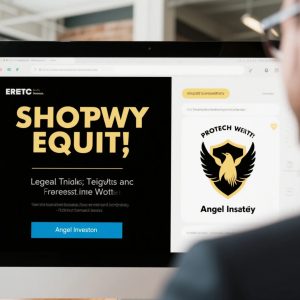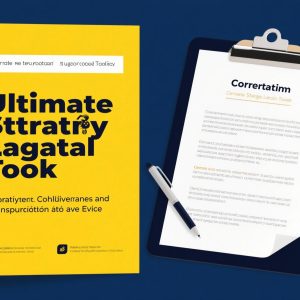Understanding Crowdfunding Regulations and Compliance Requirements
Navigating the complex world of crowdfunding legal compliance requires careful attention to both federal and state securities laws. The JOBS Act created several distinct crowdfunding frameworks, each with specific rules governing how much you can raise, who can invest, and what disclosures you must provide. Regulation Crowdfunding (Reg CF) allows up to $5 million annually from both accredited and non-accredited investors, while Regulation A+ permits up to $75 million but requires more extensive financial disclosures. Many startups make the costly mistake of treating crowdfunding as a “free for all” fundraising method, not realizing that improper solicitation or failure to file required forms with the SEC can lead to severe penalties, including investor rescission rights and regulatory sanctions.
What makes legal advice for new business particularly crucial for crowdfunding campaigns is the intersection of securities law, consumer protection regulations, and advertising standards. Your campaign page isn’t just marketing material – it’s a legal disclosure document that must avoid misleading statements while providing all material information potential investors need to make informed decisions. State blue sky laws add another layer of complexity, as some states require separate filings even for federally-qualified offerings. The most successful crowdfunding campaigns work with securities attorneys from the planning stages to ensure every aspect of their raise – from financial projections to risk factor disclosures – meets regulatory requirements while still effectively telling the company’s story.
Structuring Your Campaign to Protect Company Equity
Preserving your startup’s long-term value requires strategic startup equity protection planning before launching any crowdfunding round. Many entrepreneurs focus solely on hitting their funding target without considering how crowdfunding investors will impact future financing rounds. The type of security you offer – whether simple agreements for future equity (SAFEs), convertible notes, or direct equity – carries significant implications for your capitalization table and investor relations. Convertible instruments may delay valuation discussions but can create complex dilution scenarios later, while direct equity sales immediately establish valuation benchmarks that could limit future flexibility.
A comprehensive business EIN setup and corporate structure forms the foundation for equity protection in crowdfunding campaigns. Many platforms require a C-corporation with clean capitalization tables before allowing equity offerings. Proper documentation of all previous equity grants, founder agreements, and intellectual property assignments prevents messy disputes when hundreds of new micro-investors join your cap table. The most sophisticated approaches implement special purpose vehicles (SPVs) or crowdfunding-specific share classes that consolidate small investors into single line items, preserving your ability to attract traditional venture capital later. Savvy founders balance the immediate benefits of crowdfunding capital against the long-term governance challenges of managing a large, dispersed investor base.
Essential Legal Documents for Crowdfunding Campaigns
Launching a compliant crowdfunding campaign requires more than just an engaging pitch – it demands a thorough angel investor legal contracts framework adapted for the crowdfunding context. Your offering documents must include specific risk factors, financial disclosures, and business descriptions that meet SEC requirements while remaining accessible to non-professional investors. Many platforms provide template documents, but these generic forms often fail to address niche risks specific to your industry or business model. The most protective approaches customize disclosure language to accurately reflect your startup’s unique circumstances while maintaining compliance with Regulation CF or Regulation A+ requirements.
Beyond the core offering documents, proper legal advice for new business should address the ancillary agreements that govern post-campaign relationships with your new investors. Subscription agreements, investor rights memoranda, and communications policies establish clear expectations about financial reporting, voting rights, and liquidity options. Particularly for equity campaigns, these documents should anticipate future scenarios like acquisition offers or additional funding rounds that might affect crowdfunding investors. The most comprehensive legal strategies implement graduated disclosure systems – providing all required legal information while creating separate, more engaging materials for marketing purposes that steer clear of problematic forward-looking statements.

Navigating Tax and Reporting Obligations
Crowdfunding success introduces complex tax considerations that begin with proper business EIN setup and extend through ongoing compliance. Many founders don’t realize that different crowdfunding models create distinct tax implications – reward-based pledges might be treated as taxable income, while equity investments constitute capital that needs proper accounting. The IRS pays particular attention to crowdfunding campaigns that blur the line between gifts, pre-orders, and investment contracts. Maintaining clear records from day one prevents painful audits later and ensures you can properly document the nature of funds received during your campaign.
The reporting requirements for crowdfunding legal compliance extend beyond initial filings with the SEC. Regulation CF campaigns must provide annual reports to investors and the SEC until certain termination conditions are met. Failure to meet these ongoing obligations can trigger penalties and even disqualify your company from future exempt offerings. State tax obligations add another layer of complexity, especially for companies that attract investors from multiple jurisdictions. The most thorough approaches implement systems for tracking investor communications, financial disclosures, and state notice filings from the outset – treating crowdfunding not as a one-time event but as an ongoing regulatory relationship.
Protecting Intellectual Property During Public Fundraising
Public crowdfunding campaigns require careful startup equity protection of your intellectual property assets during the fundraising process. Many entrepreneurs enthusiastically share product details and business strategies in their campaign materials, only to later discover they’ve jeopardized patent rights or created prior art problems. The America Invents Act’s first-to-file system makes premature disclosure particularly dangerous for hardware startups and inventors. The most sophisticated campaigns strike a delicate balance – providing enough detail to attract investors while protecting core IP through provisional patents, copyright filings, and careful control of technical disclosures.
A comprehensive angel investor legal contracts approach to IP protection should address both registered rights (patents, trademarks) and unregistered assets (trade secrets, proprietary processes). Non-disclosure agreements for early product testers, clear work-for-hire language for contractor contributions, and careful management of open source components all contribute to maintaining clean IP ownership. Particularly for technology startups, crowdfunding campaigns should be timed to coincide with key IP filing milestones rather than rushing to market with unprotected innovations. Savvy founders view their campaign not just as a fundraising tool but as part of a coordinated IP strategy that supports long-term valuation growth.
Managing Investor Relations and Communication Compliance
Successful crowdfunding creates ongoing legal advice for new business obligations around investor communications that many startups underestimate. Unlike traditional angel or venture funding where investors are sophisticated and few, crowdfunding can instantly create hundreds of small stakeholders entitled to regular updates. What you say (or don’t say) in these communications carries legal weight – overly optimistic projections might violate securities laws, while failure to disclose material changes could lead to fraud allegations. The most compliant operations implement disciplined communication policies that balance transparency with legal risk management.
The challenges of crowdfunding legal compliance in investor relations multiply when dealing with international backers or navigating subsequent funding rounds. Some jurisdictions have unique rules about financial promotions even for U.S.-based offerings. Future investors will scrutinize how you’ve managed your crowdfunding base when considering later-stage investments. The most strategic approaches create tiered communication systems – detailed financial reports for equity holders, product updates for reward backers, and carefully vetted public statements that maintain regulatory compliance while building community engagement.
Avoiding Common Pitfalls in Crowdfunding Campaigns
Many promising startups derail their fundraising efforts by overlooking key business EIN setup and structural requirements for crowdfunding campaigns. Using personal bank accounts for campaign funds, failing to properly document expenses, or mixing crowdfunding capital with other financing can create accounting nightmares and legal vulnerabilities. The most common legal mistakes include improper solicitation (general advertising before filing with the SEC), unrealistic valuation claims, and failure to properly disclose conflicts of interest or related-party transactions. These oversights often surface during due diligence for subsequent funding rounds, creating costly clean-up projects.
A thorough startup equity protection strategy anticipates these pitfalls before launching your campaign. Proper corporate formation, clean capitalization tables, and documented intellectual property ownership should precede any public fundraising. Financial projections should be carefully vetted for reasonable assumptions and clear disclaimers. Marketing materials should undergo legal review to ensure compliance with both securities regulations and FTC advertising guidelines. The most successful campaigns view legal compliance not as a barrier but as a framework that builds investor confidence while protecting the company’s long-term interests.
Building a Compliance Framework for Future Growth
Smart startups design their angel investor legal contracts and crowdfunding strategies with an eye toward future financing rounds and exit scenarios. The decisions you make during your initial raise – security type, valuation method, investor rights – will significantly impact your ability to attract traditional investors later. Many venture capital firms view crowded cap tables with hundreds of small investors as red flags, requiring expensive cleanup efforts before investing. The most forward-looking approaches implement structures like special purpose vehicles or crowdfunding-specific share classes that maintain future flexibility while still accessing the benefits of community funding.
The most strategic legal advice for new business for crowdfunding campaigns considers the entire business lifecycle. How will this round affect future 409A valuations? What investor consent rights might complicate subsequent financings? How will acquisition offers navigate numerous small stakeholders? Answering these questions during campaign design prevents painful surprises later. Particularly for startups with ambitious growth plans, the ideal legal approach balances immediate fundraising needs with long-term corporate development strategy, ensuring your crowdfunding success becomes a stepping stone rather than an obstacle to scaling your venture.





